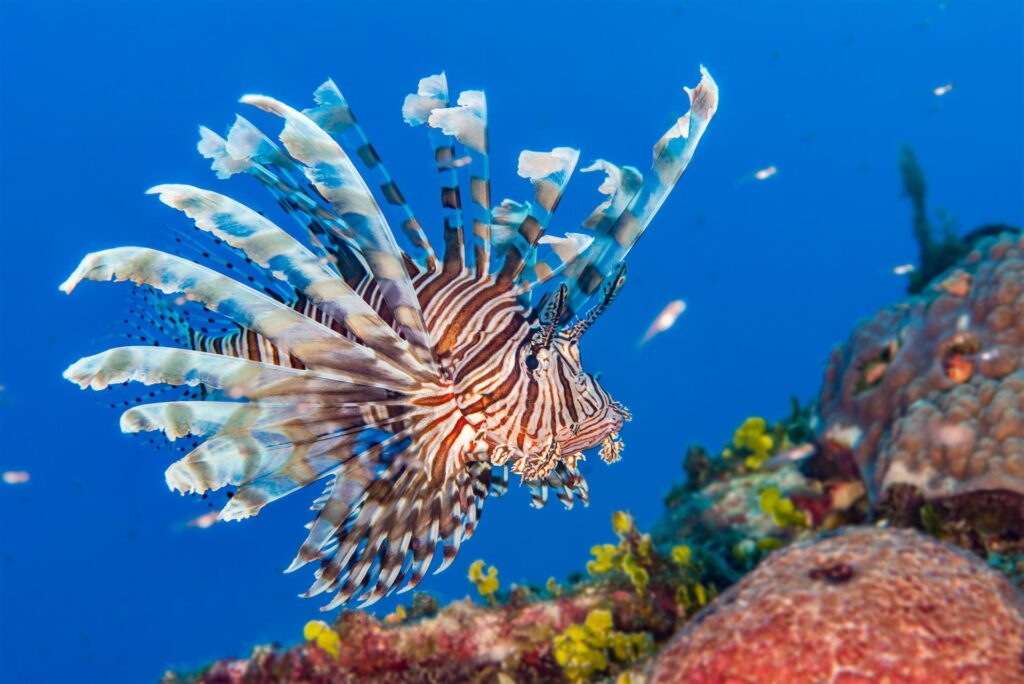The Caribbean’s beautiful biodiversity, culture, and heritage are among its strongest draws for travellers and explorers, making tourism a significant proportion of the region’s Gross Domestic Product (GDP). According to the Caribbean Tourism Organisation, over 32 million people came to our shores in 2019, which was a record year that saw more than US$58 billion injected into the region — roughly 14% of the Caribbean’s overall GDP.
The following years saw the global pandemic inhibit the sector, which also highlighted how important it is to factor sustainability and resilience into every aspect of our economies.
Encouraging sustainable tourism is an invaluable way to help protect and preserve the region’s culture and natural environment. While it’s had a growing regional market share in recent years, the pandemic in many respects accelerated its growth, as forward-looking states seek to invest in solutions capable of safeguarding future generations and fostering economic growth through climate-smart choices.
The Caribbean has a range of solutions and opportunities it is developing to make tourism and its associated industries greener, with plans to have these become the world-leading blueprints and a global standard.
Greening the transportation industry is a complex challenge. Major strides have been made in the electric vehicle industry, and everything from personal vehicles, public transport, and micromobility is being transitioned to electric relatively quickly.
However, cross-border transportation via boat and plane remain the outliers. These two forms of transport are synonymous with life on islands, and the emissions and environmental impact of air and sea travel are significant.
“We have, to our advantage, short-haul businesses — less than 200 miles, up to 50 miles in some cases between countries,” President of the Caribbean Development Bank Dr Hyginus “Gene” Leon said at a Barbados Chamber of Commerce and Industry (BCCI) business luncheon in February. “What prevents us from adopting a green technology — battery, hydrogen-powered, vertical take-off and landing that can hop from one country to the next? Why can’t we have fast ferries moving people and goods at the same time at the different points in the islands?”
Innovative research into alternative ferry fuels and propulsion is opening doors to the use of large-scale lithium-ion batteries, hybrid ship propulsion, and even hydrogen. In the airline industry, a lot of investment is being made into similar research, with hydrogen showing a lot of promise.
Green hydrogen is part of the Caribbean future, with plans to unite the region’s renewable energy sources to create a Single Energy Export Market capable of bringing in significant cash flow and reducing reliance on fossil fuels. Combined with smart technology and new innovations, local green hydrogen can lead to the future Dr Leon is envisaging.
The final weeks of 2022 saw a global consensus reached on the protection of biodiversity. Assembled at the United Nations (UN) Convention on Biological Diversity in Montreal, international delegates representing civil society and national governments came together to adopt a goal of protecting 30% of the world’s natural areas by 2030.
The 30×30 target has invigorated entrepreneurs keen on developing environmentally-sound activities on land (green) and at sea (blue) that contribute to economic growth. Currently, only 17% of land and 8% of oceans are protected, and most biodiverse areas critical to global ecosystems are found in and around “large ocean states” like those in the greater Caribbean.
The recent agreement reached at the UN in February during negotiations on the Biodiversity Beyond National Jurisdiction (BBNJ) treaty — better known as the “high seas treaty” — will provide a pathway to meeting the 30% goal within marine habitats.
The BBNJ will equip lawmakers with the ability to create marine protected areas in international waters, and outline frameworks for collaboration in monitoring and protecting these areas. It’s a major, hard-fought step toward meeting the 30×30 goal.
Active conservation and the protection of natural areas as a focal point for economic development is especially viable in countries or regions with a rich, biodiverse environment like the Caribbean. In fact, the Caribbean is perfectly positioned to capitalise on a blue/green economy.
The region demonstrated its ability to integrate biodiversity goals into our economic growth plans when we launched and achieved our own independent 20×20 target. As such, the Caribbean already has several opportunities for sustainable development readily available, especially within the tourism sector.
In the Bahamas, mangrove planting and coral reef restoration are at the heart of tourism activities at major resorts. In Barbados, holistic ecotourism opportunities are offered by WIRRED, while Yardie Divers — a dive shop in Jamaica — combines environmental education with scuba diving trips. If you travel to Puerto Rico, you can experience world-class agritourism by learning and participating in traditional crop-to-cup coffee practices, and in Grenada entire “voluntourism” trips are planned for tourists seeking to volunteer their time for sustainable initiatives.
Each of these activities highlights the importance of the environment to the communities adjacent to it. The Caribbean is full of such enriching experiences that place our region’s authentic natural beauty and cultural heritage at the heart of our tourism.
The importance of sustainable tourism cannot be overstated, as the Caribbean Policy Research Institute’s Dr Ishtar Govia notes. “The pandemic created an urgent need for more sustainable tourism models, practices, and strategies aimed at improved energy and food security, product diversification, more direct, mutually beneficial linkages with communities and capacity building at various levels across the sector.”
By future-proofing the tourism and associated sectors through sustainable development, we are also building resilience and providing a better, more personal and meaningful tourism experience to visitors.
The Caribbean is already trending towards making this the new status quo. Saba maintained its spot among the world’s best ecotourism destinations in 2022, with its government noting that the award recognises future-proofing of the sector.
Likewise, St Lucia has been recognised by the UN Environmental Programme for its work in developing sustainable tourism within a blue economy, while the budding ecotourism sectors in St Vincent and Dominica are also gaining international reputations for high quality experiences.
So, can your Caribbean vacation “go green”? Yes it can, and the region demonstrates that there’s no shortage of ways to do it.
Island Innovation is a social enterprise and digital media platform at the intersection of sustainable development and communications. Learn more at islandinnovation.co

